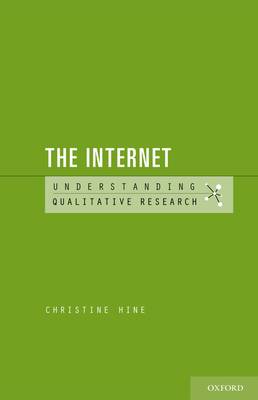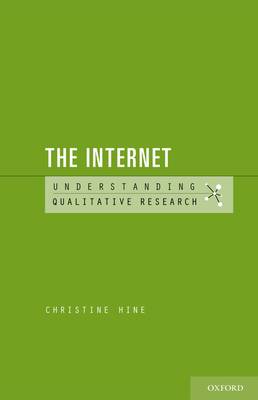
- Afhalen na 1 uur in een winkel met voorraad
- Gratis thuislevering in België vanaf € 30
- Ruim aanbod met 7 miljoen producten
- Afhalen na 1 uur in een winkel met voorraad
- Gratis thuislevering in België vanaf € 30
- Ruim aanbod met 7 miljoen producten
Zoeken
€ 82,45
+ 164 punten
Omschrijving
As use of the Internet has become increasingly widespread, the Internet has also become a natural site for qualitative research. New researchable populations emerge, and illuminating discussions on every conceivable topic have become accessible to researchers. The Internet also presents many challenges, however, raising the questions of how to develop ethical and achievable research projects, and how to present findings to the widest possible audience. This book focuses on the process of writing qualitative Internet research, from the construction of the initial proposal to the preparation of different types of research reports, including conventional dissertations and more innovative media forms. Covering ethnographic, interview-based, and documentary analysis, The Internet offers clear guidance on the challenges and opportunities posed by the application of these approaches to Internet settings, drawing on a wide array of published examples and rooting its advice in the established principles of qualitative research. The author emphasizes the importance of reflexivity and developing awareness of the various genres of qualitative writing, together with building research reports that are significant as mainstream social research. Although the emphasis of this book is on qualitative research, it also draws on quantitative research techniques, since the sheer wealth of data available on the Internet prompts consideration of new ways of visualizing and summarizing data. The Internet also explores initiatives by Internet researchers to make use of new media technologies for analyzing and presenting their research, and to allow for new forms of interaction with research participants and audiences.
Specificaties
Betrokkenen
- Auteur(s):
- Uitgeverij:
Inhoud
- Aantal bladzijden:
- 178
- Taal:
- Engels
- Reeks:
Eigenschappen
- Productcode (EAN):
- 9780199793891
- Verschijningsdatum:
- 16/10/2012
- Uitvoering:
- Paperback
- Formaat:
- Trade paperback (VS)
- Afmetingen:
- 140 mm x 216 mm
- Gewicht:
- 213 g

Alleen bij Standaard Boekhandel
+ 164 punten op je klantenkaart van Standaard Boekhandel
Beoordelingen
We publiceren alleen reviews die voldoen aan de voorwaarden voor reviews. Bekijk onze voorwaarden voor reviews.











